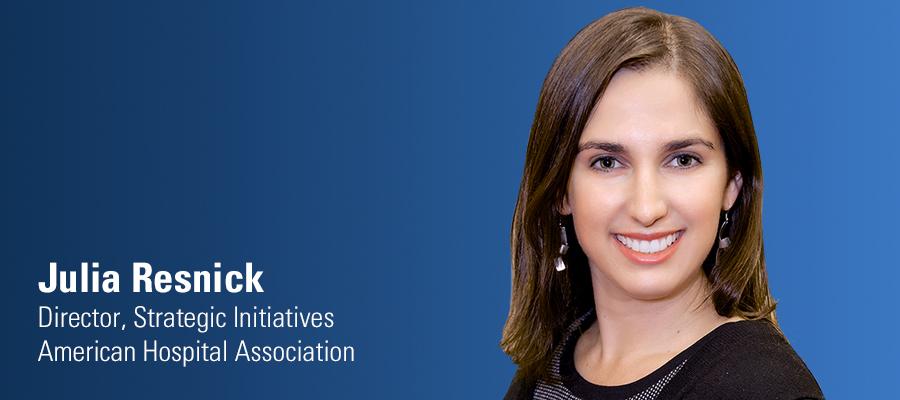Beyond Birth: Exploring Stories of Motherhood and Health Care

Our health may be the most personal and important thing we have. It determines how we feel when we wake up in the morning, how we relate to our families and our jobs, and, ultimately, how long and how well we live. Yet in the health care field, often the way we tell the stories of programs or interventions is, frankly, depersonalized. We talk in terms of data and metrics, of diagnoses and treatments; too often, we lose the voice of the people most impacted by the care.
Capturing that voice is the genesis of the Beyond Birth podcast series. We wanted to bring hospital programs to life by telling the personal stories of how they positively impact moms and their families. We also recognized that a healthy pregnancy is not just what happens in the delivery room. It involves caring for a pregnant person’s social, emotional and medical needs during pregnancy and postpartum.
This award-winning five-episode podcast series covers some of the pressing issues facing maternal health and well-being. While I encourage you to listen to these episodes – my written description cannot do these moms’ stories justice – I’ll share some key takeaways from each episode.
Meeting the Social Needs of Pregnant People and New Moms
The inaugural episode of Beyond Birth features Stacy Garrett-Ray, M.D., senior vice president and chief community impact officer at Ascension Health, and how her team implemented the Maternal Health Social System Initiative to reduce barriers to accessing prenatal care by addressing the social needs of their high-risk pregnant patients. I also spoke with X’Laodai Mack, new mom and Ascension patient who shares how getting transportation support enabled her to get to prenatal care appointments and ultimately have a healthy pregnancy.
Perinatal Mental Health
While perinatal mental health is the leading underlying cause of maternal morbidity and mortality, it often goes undetected and untreated. So, we thought it warranted two episodes.
Training Clinicians to Address Perinatal Mental Health
We start with Tiffany Moore Simas, M.D., chair of obstetrics and gynecology at UMass Memorial Health, an expert in perinatal mental health. Because of the ongoing shortage of perinatal mental health professionals, Moore Simas is working to increase the capacity of clinicians to meet new moms’ mental health needs. Massachusetts Child Psychiatry Access Program for Moms equips clinicians with tools and guidance to empower them to support moms with mental health conditions.
Perinatal Mental Health Support on Demand
In the next episode, we explore perinatal mental health through a different angle. Laura LaPorte, LCSW, manager of the Perinatal Depression Program at Endeavor Health, shares how the system meets the mental health needs of new parents through the Mom’s Line. The country’s first 24/7 maternal mental health hotline offers new parents access to mental health resources wherever and whenever they need it. I also spoke with Anna Ma who experienced perinatal depression and shared how the Mom’s Line helped her through some dark times. “I want to tell new moms to have patience and love and grace for themselves. To be a good mom, you need to take care of yourself…It takes a village to get a mom out of severe postpartum anxiety and depression, and you need multiple supports in place,” Ma shared.
Cardiovascular Health
Pregnancy is a major stressor on a woman’s body, with cardiovascular conditions being one of the most prevalent complications and leading causes of maternal mortality. Two physicians from Orlando Health Winnie Palmer Hospital for Women and Babies – Lori Boardman, M.D., assistant vice president and chief quality officer, and Chinedu Nwabuobi, M.D., maternal-fetal medicine physician, discuss how they approach disparities in birth outcomes through a quality improvement lens. Recognizing that much of health happens beyond the hospital walls, they implemented a telehealth hypertension program to monitor high-risk pregnant and postpartum patients. Patient Crystal Wilson, who learns she has a heart condition during her pregnancy, shares how the telehealth program helped her have a safer pregnancy.
New Moms in the Health Care Workforce
Careers in health care are particularly challenging for new moms who strive to balance being a caregiver at work and at home. To learn about how health care organizations can better support new parents and reduce burnout, I spoke with Yara Mikhaeil-Demo, M.D., assistant professor of neurology at Northwestern's Feinberg School of Medicine and a physician well-being coach. She is joined by Michelle Yu, co-founder and CEO of Josie, a company that guides new parents through the transition to working parenthood. Both women are moms of young children, and they discuss accessible strategies health care organizations can implement to help moms of young children, such as having nearby space available for pumping and scheduling meetings during normal working hours.
Every new mom has a story, and it has been an honor to share these women’s vulnerable and honest experiences of motherhood. As our country continues to grapple with its maternal health crisis, we will continue to share how health care organizations are meeting the challenge and highlight the stories of the people impacted.
If you have a story you want to share with the health care field about your hospital’s maternal health initiative, please reach out to me at jresnick@aha.org.
Julia Resnick, MPH, serves as director of strategic initiatives at the American Hospital Association and maternal health is part of her portfolio.

